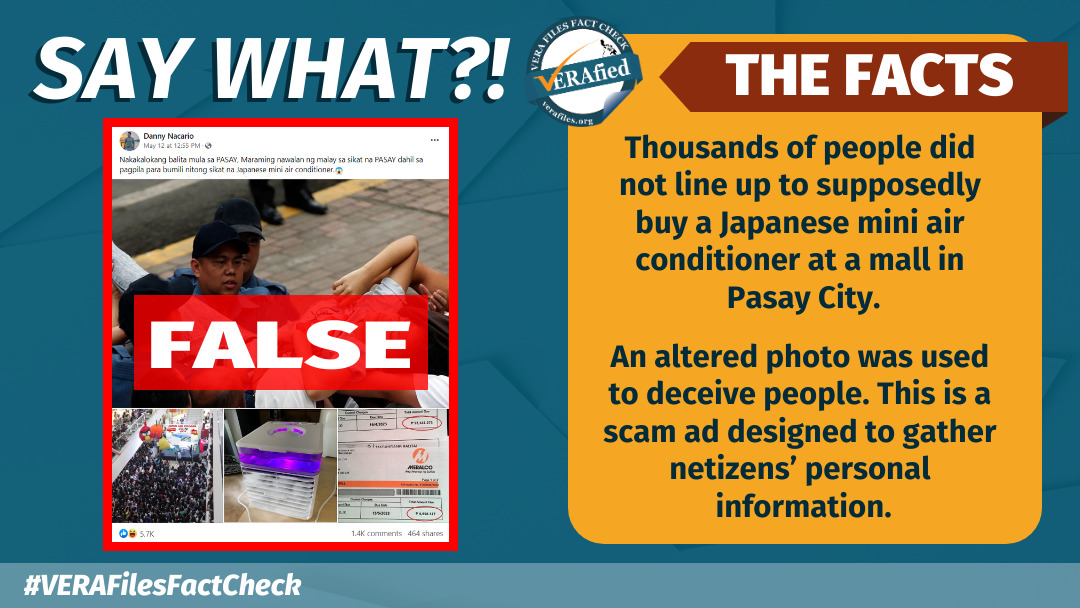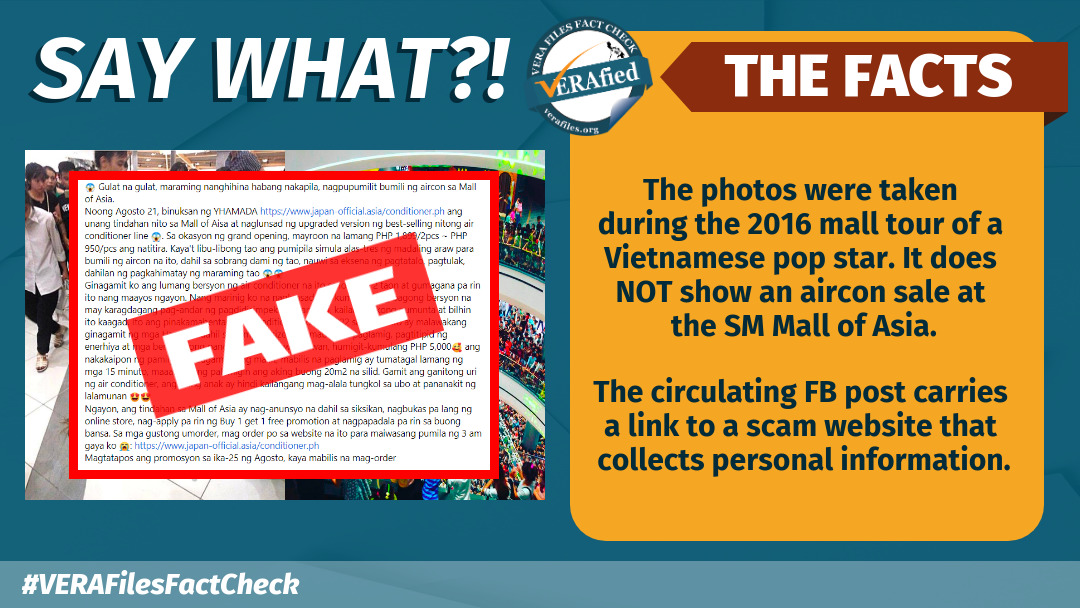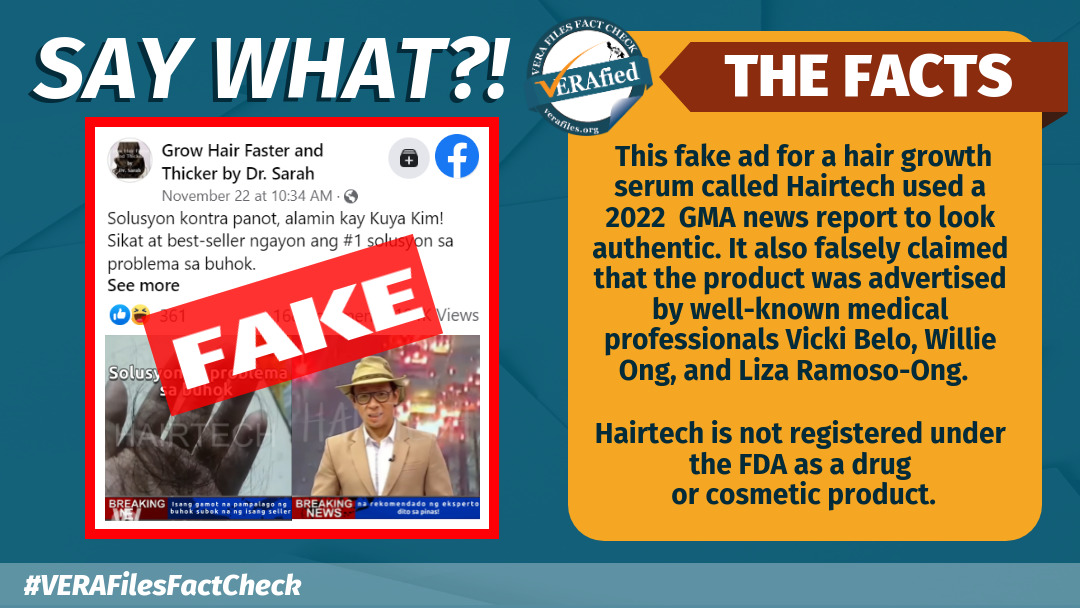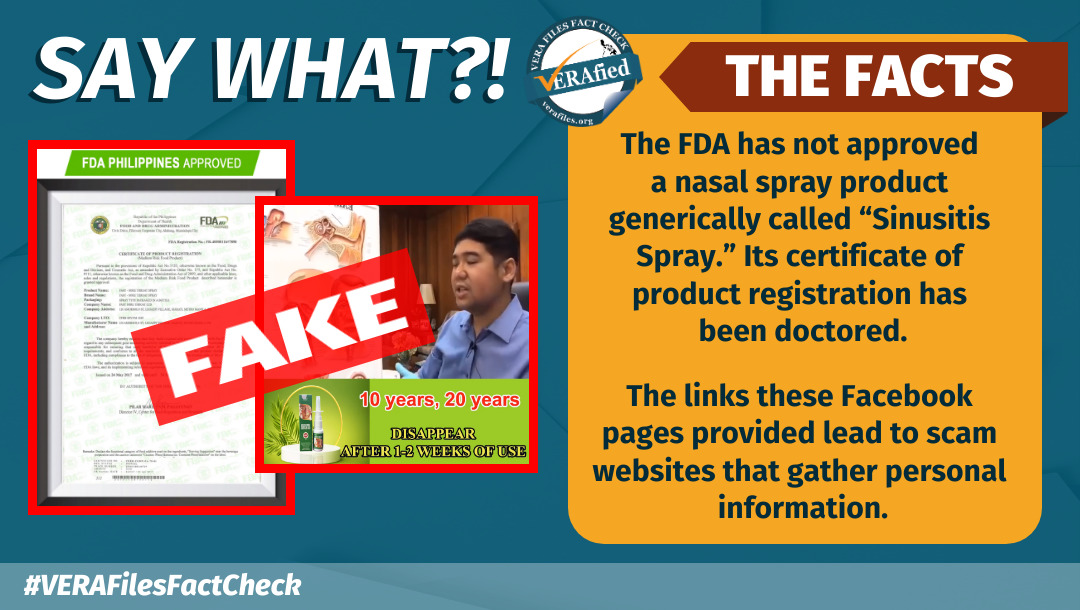As extremely hot weather continues to fire up the Philippines this week, another advertisement promoting a Japanese air conditioner has gone viral on Facebook (FB). This is a scam designed to gather netizens’ personal information.
On May 12, the fraudulent ad was published by an FB page selling a mini air conditioner from a so-called Japanese brand called “Mittsuta” with a “50% discount” and no shipping fee. Mittsuta supposedly opened up an online website (japanmalesale8.online) after thousands lined up at an unspecified mall in Pasay City for the sale.
Not true. This fraudulent scheme was debunked by VERA Files Fact Check several times last year.
(Watch #VERAFIED Yearender: ‘Buy one, get scammed free:’ Mga scam, nagkalat sa social media nitong 2022)
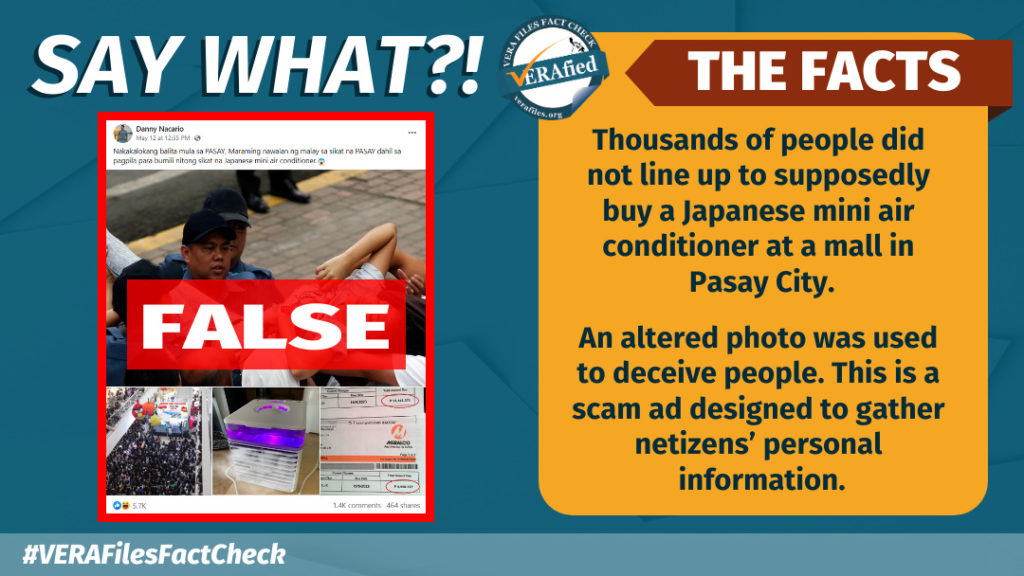
To prove the “popularity” of the air conditioner, the FB page uploaded two photos showing an unconscious woman being carried by police, and a huge gathering of people in front of a stage with the alleged banner carrying the text: “Grand Opening: Japan Air Cooler, Sale Off 50%”.
The first photo was given false context. It is a 2015 Reuters picture which featured police carrying to safety a woman who fainted while waiting for the arrival of Pope Francis.
The latter photo was altered. It was taken during a book signing event.
A cursory search yielded no official website for the alleged Mittsuta company. Instead, the search result showed similar circulating ads online using the name of the brand.
Other hoaxes have promoted the product under the same brand with a minor difference in spelling — “Mitsuta”. (Read related fact-check: Take 2 for ‘aircon sale’ SCAM with altered image, bogus links)
The Philippine National Police has given tips to avoid e-commerce fraud, including the following:
- Research an unfamiliar product or brand. Search for its name with terms like “scam” or “complaint” and look for reviews.
- Check if the phone numbers and addresses of store sites are genuine.
- Look twice at URL and app names. Misplaced or transposed letters are a scam giveaway but easy to miss.
FB page Danny Nacario (created on April 10) published the promoted post that garnered over 5,700 reactions, 1,400 comments and 464 shares.
Have you seen any dubious claims, photos, memes, or online posts that you want us to verify? Fill out this reader request form or send it to ‘VERA, the truth bot’ on Viber.
(Editor’s Note: VERA Files has partnered with Facebook to fight the spread of disinformation. Find out more about this partnership and our methodology.)
